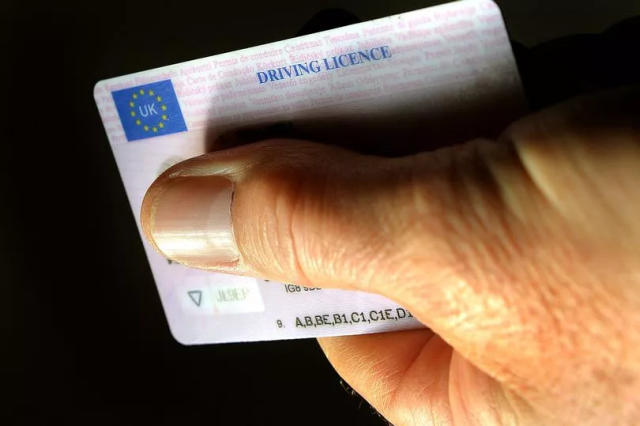Ensuring road safety is a paramount concern for governments, road authorities, and the general public alike. A critical aspect of maintaining safe roads is the regular checking of driving licenses. These checks play a vital role in ensuring that only qualified and competent individuals are behind the wheel, thereby reducing the risk of accidents and enhancing overall road safety. In this article, we will explore why regular driving license checks are essential, the benefits they bring, and how they contribute to a safer driving environment.
The Importance of Driving License Checks
Driving license checks are systematic evaluations carried out to verify the authenticity and validity of a driver’s license. These checks are crucial for several reasons:
- Ensuring Driver Competency: Regular checks help ensure that all drivers on the road possess the necessary skills and knowledge to operate a vehicle safely. This includes understanding traffic laws, road signs, and safe driving practices. By verifying that licenses are valid and not expired, authorities can confirm that drivers have met the required standards for operating a vehicle.
- Identifying Invalid Licenses: Through regular checks, authorities can identify and address cases of invalid or fraudulent licenses. This includes licenses that have been suspended, revoked, or those that are counterfeit. Ensuring that only legitimate licenses are in circulation helps to maintain a trustworthy licensing system and prevent unqualified individuals from driving.
- Maintaining Updated Driver Information: Regular checks ensure that driver information is current and accurate. This includes personal details, address, and any medical conditions that may affect driving ability. Accurate records help authorities to contact drivers when necessary and ensure that any restrictions or conditions on a license are adhered to.
Benefits of Regular Driving License Checks
The implementation of regular driving license checks brings numerous benefits that contribute to the overall safety and efficiency of road transportation.
- Reduction in Traffic Accidents: By ensuring that only qualified drivers are on the road, the likelihood of traffic accidents decreases. Inexperienced or unqualified drivers are more prone to making errors that can lead to accidents. Regular checks help to filter out these high-risk drivers, thereby enhancing road safety.
- Enhanced Law Enforcement: Regular driving license checks enable law enforcement agencies to effectively monitor and regulate driving activities. This includes identifying drivers who are operating vehicles without a valid license or those who are violating traffic laws. Enhanced enforcement capabilities lead to better compliance with road safety regulations and deter illegal driving behaviors.
- Improved Public Confidence: Knowing that there are stringent measures in place to verify the validity of driving licenses instills confidence in the public. Drivers and pedestrians alike can feel safer knowing that the drivers sharing the road with them have been vetted and are qualified to drive.
- Support for Insurance Claims: In the event of an accident, verifying the validity of a driver’s license is crucial for insurance claims. Regular checks ensure that insurance companies have access to accurate and up-to-date information, facilitating the claims process and ensuring that coverage is provided to legitimate policyholders.
Methods of Conducting Driving License Checks
There are several methods through which driving license checks can be conducted. These methods vary in terms of their approach and the technology used, but all aim to ensure that licenses are valid and drivers are qualified.
- Random Roadside Checks: Law enforcement agencies often conduct random roadside checks to verify the validity of drivers’ licenses. During these checks, officers stop vehicles and request to see the driver’s license, registration, and insurance documents. This method is effective in identifying unlicensed drivers and those with expired or fraudulent licenses.
- Electronic Verification Systems: Many countries have implemented electronic systems that allow for the real-time verification of driving licenses. These systems are connected to central databases that store license information. When a driver’s license is scanned or entered into the system, it can be quickly verified for validity, authenticity, and any restrictions.
- Regular Renewals and Updates: Drivers are often required to renew their licenses periodically. During the renewal process, they must provide updated information and may need to undergo tests to ensure their continued competency. This process helps to maintain accurate records and ensures that drivers remain qualified.
- Employer Checks: Companies that employ drivers, such as delivery services and transport companies, often conduct regular checks on their employees’ licenses. This ensures that their drivers are legally allowed to operate the vehicles and are compliant with all regulations.
Challenges and Solutions
While the importance of regular driving license checks is clear, there are challenges associated with their implementation. These challenges include:
- Resource Allocation: Conducting regular checks requires significant resources, including personnel, technology, and funding. To address this, governments and authorities can invest in advanced electronic verification systems that streamline the process and reduce the need for extensive manpower.
- Privacy Concerns: The collection and verification of personal information can raise privacy concerns among drivers. It is essential to implement strict data protection measures to ensure that personal information is handled securely and used only for legitimate purposes.
- Compliance and Enforcement: Ensuring that drivers comply with the requirement for regular checks can be challenging. Public awareness campaigns and stricter penalties for non-compliance can help to encourage adherence to the rules.
Conclusion
Regular driving license checks are a fundamental component of ensuring road safety. By verifying the validity and authenticity of licenses, authorities can ensure that only qualified drivers are on the road. The benefits of these checks include a reduction in traffic accidents, enhanced law enforcement capabilities, improved public confidence, and support for insurance claims. While there are challenges associated with implementing regular checks, they can be addressed through the use of advanced technology, strict data protection measures, and public awareness campaigns. Ultimately, regular driving license checks are essential for maintaining safe and efficient roadways, protecting the lives of drivers and pedestrians alike.



